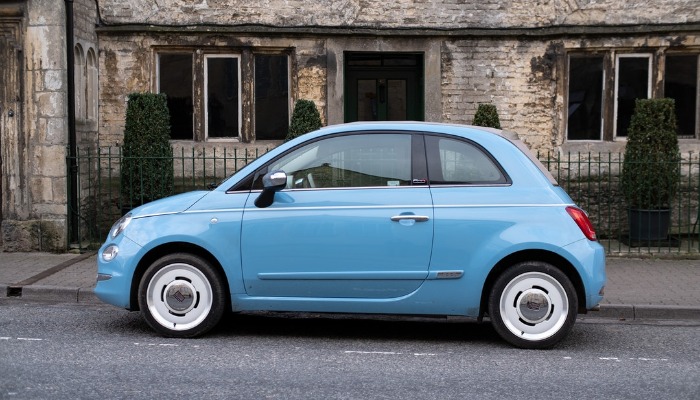Last Updated on Dec 21, 2019 by James W
Buying a new car (or new to you) often starts with figuring out whether you can afford the payment they offer at the dealership. Big mistake. Car salespeople want to sell the vehicles that get them the biggest commissions — they aren’t trying to help you find a car that fits your budget.
That responsibility falls squarely on your shoulders.
Understanding the Cost of Car Ownership
According to Experian, the average car payment is $523. While you might be able to fit that into your budget, your installment or lease payment is not the only cost you need to consider. Owning a car is more expensive than that. AAA reports that it costs closer to $878 per month to own your vehicle – that’s $350 more than what you would have budgeted if you only based your cost on the monthly installment fee.
Plus, that figure doesn’t include parking.
Adding Up Your Other Costs
There are several other cost factors to include in your monthly car budget.
Insurance
The average monthly premium is $98, but yours could be significantly different depending on the make and model of the vehicle you choose, as well as your driving history, credit score and the coverage levels you want.
Fuel Costs
The biggest extra expense comes from fuel. If you are driving 15,000 miles per year, you should expect to spend an average of $146 per month on gas. Look at your car’s fuel economy and multiply the miles-per-gallon estimate by the price of gas in your area to forecast your own fuel cost.
Maintenance
Your next most significant expense is going to come from maintenance and repairs: oil changes, brake pads, new tires, regular maintenance and mechanical issues. If you get a good warranty with your vehicle, the cost could be much lower, but you need to make sure you know exactly what you are getting.
Reducing Car Expenses
There are several ways you can reduce your costs of car ownership, aside from choosing a cheaper car and never driving anywhere.
Work With Your Insurance Company
The first step is to take a careful look at your insurance policy. You shouldn’t reduce your insurance coverage; the last thing you want is to be on the hook for all the expenses your insurance won’t cover. However, you can increase your deductible; just don’t make it any higher than what you know you can afford. You also may not need roadside assistance or rental coverage.
Getting a low-mileage auto insurance plan is another option. If you barely drive, you could save 50 percent or more on your insurance every month.
Shop Around and Use Coupons
Make sure that you shop around when you do need maintenance. Auto shops put special deals on Groupon, Amazon Local and Facebook all the time. Some of them may put coupons on their websites, too. Do the research and make sure that you don’t miss a good deal.
If you need a repair, consider trying to find the specific parts that will be used. Checking eBay or your local junkyard for a taillight, bumper or side mirror only takes a few minutes and could help you pay a fraction of the cost of full retail.
Buy the Extended Warranty
Finally, look into car warranty plans. The right one can help long-term costs be more predictable while saving money along the way.
Extended warranties are designed to pay for repairs after the factory warranty that came with your car expires. While they generally don’t cover wear-and-tear like oil changes or air filters, they do cover major mechanical issues. If your transmission fails, you are covered. If a sensor fails or your seat adjustment won’t adjust, you can get it fixed.
Remember, when you buy a car, you have to keep it running well. If it dies, you still have to pay the bank or lender. Purchasing the extended warranty now will protect you later.
By purchasing the extended warranty, you make sure that you have any repairs covered instead of needing to pay for them out of pocket. Budgeting becomes much easier, and there may be perks. For instance, some extended warranties include roadside assistance or towing.
The cost of owning a car is more than your monthly payment. You also have taxes and registration fees to consider as well as insurance, fuel, maintenance and repair costs. Be smart about your expenses and look for bargains. Purchasing an extended warranty is also a good idea. It lets you avoid the stress of needing to pay for a major repair.




